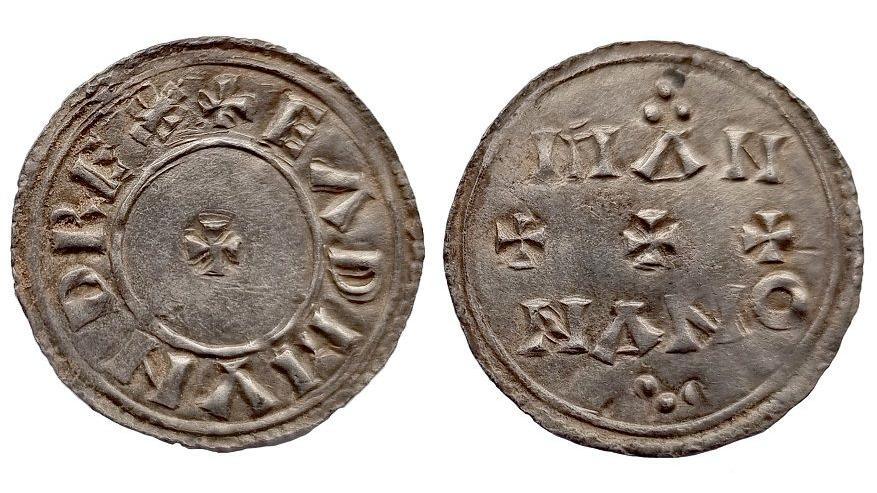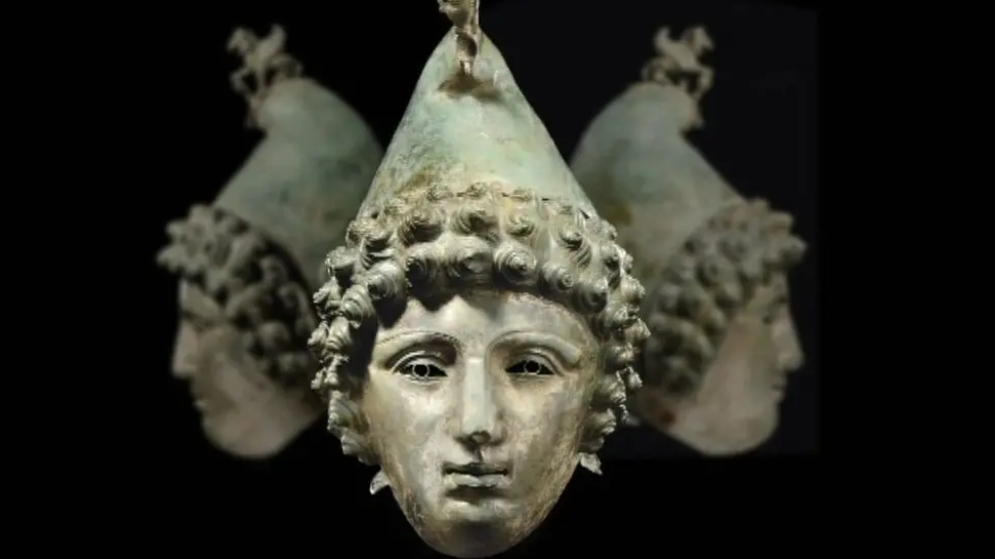Hoard of medieval coins declared 'treasure'

The coins were found by a man using a metal detector near Kirkby Stephen
- Published
A hoard of medieval silver pennies, dating back to the 10th Century, has formally been declared treasure.
The collection of 20 hammered coins was found approximately 8-9in underground by a man using a metal detector in Crosby, near Kirkby Stephen, Cumbria, in February 2022.
An inquest at Cockermouth Coroners' Court on Thursday heard the pennies have now been formally classified as treasure by a curator from the British Museum.
The curator concluded at least two of the coins contained 10% precious metal and are more than 300 years old.
Assistant Cumbria coroner Ms Margaret Taylor said a museum has expressed an interest in acquiring the coins.
Objects of historical importance more than 200 years old and containing metal are now deemed to be ‘treasure’ - and considered to merit public display - following a government change to the legal definition of treasure in 2023, external.
The Kirkby Stephen find consists of eight undamaged coins, each very thin, with the remaining 12 coins unearthed in a fragmented state.
According to the curator's report, the coins date back to the 10th century, during the reign of Kings Athelstan, Edmund and Eadred - from AD 924 to 955.
As the coins were issued by consecutive rulers, are mostly the same issue and in similar condition, the curator believes the coins were deposited together.

The coins were found near the place where the Crosby Garrett Roman helmet was found in 2010
The landowner, who was present at court, told Ms Taylor it was the first such discovery on his property.
However, the find is close to the scene where the Crosby Garrett Roman helmet was discovered in 2010.
Named after the Cumbrian village it was found near, the helmet has been described as "one of the most significant archaeological finds in Britain".
Follow BBC Cumbria on X, external, Facebook, external, Nextdoor and Instagram, external. Send your story ideas to northeastandcumbria@bbc.co.uk.
Related topics
More stories from BBC North East and Cumbria
- Published15 March 2017